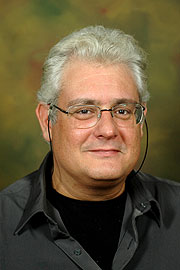

 |
||
 |
||
Vol. 10 (2): November 2007 |
||
Banking on Conservationby Vrassidas Zavras
|
 |
|
|
|
In 2005, I joined Piraeus Bank as Head of its newly-formed Environmental Department. This followed some 16 years at MOm, the Hellenic Society for the Study and Protection of the Monk Seal, where among a group of talented colleagues, I helped develop the organisation and implement its programmes in research, conservation and public outreach.
There were ups and downs, victories as well as disappointments – a fact of life to grassroots organisations engaging with governments, industry and the general public on issues as critical as the need for responsible stewardship of the environment and the promotion of sustainable development.
After years of campaigning, May 1992 saw the inauguration of Greece’s First National Marine Park of Alonnisos, Northern Sporades, protecting the Mediterranean’s largest surviving colony of monk seals. Operating our own fast patrol boat, we instituted the first guarding activities within the core zone of the Park, working closely with the local Port Police authorities. Elsewhere, we discovered important monk seal colonies in Kimolos in the Cyclades, and Karpathos in the Eastern Aegean. Eventually we succeeded in having these new monk seal habitats included in the Natura 2000 network of European protected areas. At the same time, it remains an uphill battle to convince those who need to be convinced that protected areas, no-fishing zones and other environmental measures are not anti-development but a means by which economic opportunities are created or sustained. Managed ecotourism, for example, that serves an increasingly high-profile international demand, and no-fishing zones that act as fish nurseries, and at the end of the day benefit coastal fishermen and their families.
My departure for the Corporate Social Responsibility sector did not mark a departure from monk seal conservation – far from it. Piraeus Bank continues to support the rescue and rehabilitation of orphaned monk seal pups in Greece as a longstanding sponsor of MOm’s initiatives, and in a personal capacity, I continue to serve on MOm’s Board of Directors.
With increasing concerns over global warming and environmental impacts generally, one of my chief responsibilities at the Environmental Department is to maximise Piraeus Bank’s own environmental efficiency.
In keeping with its longstanding commitment to both environmental and social responsibility, Piraeus Bank recently launched an ambitious 3-year initiative in an effort to meet that challenge – the ‘GREENbanking4Life‘ project.
GREENbanking4Life recognizes that we all have impacts upon our environment – businesses and private individuals alike. Banks are no exception.
Supported by the European Union’s LIFE ENVIRONMENT financial instrument, GREENbanking4Life is implementing a range of actions designed to reduce the Bank’s ecological footprint, reduce energy consumption, improve recycling, and bring innovative ‘green banking’ opportunities to its corporate and individual clients.
The Ecological Recycling Society, a Greek NGO, is partnering Piraeus Bank in the project.
The initiative also marks a ‘first’ for the EU, in that it is the first time that the LIFE ENVIRONMENT financial instrument has supported a bank in implementing its environmental policy.
Among specific targets, the Bank has committed itself to achieving recycling targets of 70% in its disposed paper, 50% of PET plastics and 70% of toners and ink cartridges. It also aims to reduce water consumption overall by 30%, and to achieve an overall reduction in transport of 5%. Additionally, it intends that 80% of its cleaning products be eco-labelled, and for 80% of all A4 paper it uses be recycled.
GREENbanking4Life is also deploying renewable energy systems in some of the Bank's branches, including the installation at four of its branches in Greece of Building Integrated Photovoltaic (BIPV) solar systems. It is expected that these installations will be completed and switched on during the summer of 2008.
Other key targets include designing and launching green banking products that promote environmentally friendly investments, and encouraging businesses and private individuals to invest in renewable sources of energy.
While some might consider the environmental efforts underway at the Bank a far cry from the cause of the monk seal, I would have to disagree; for if monk seal conservation has taught us anything over the years it is that the species is an ecological symbol of the health of the planet – our health. Ultimately, it will only be through more sustainable living by humans that critically endangered species, like the monk seal, will have a fair chance to survive.
Vrassidas Zavras, Athens, November 2007.
Vrassidas Zavras is the Head of the Environmental Department at the Piraeus Bank.
Copyright © 2007 Vrassidas Zavras, The Monachus Guardian. All Rights Reserved |